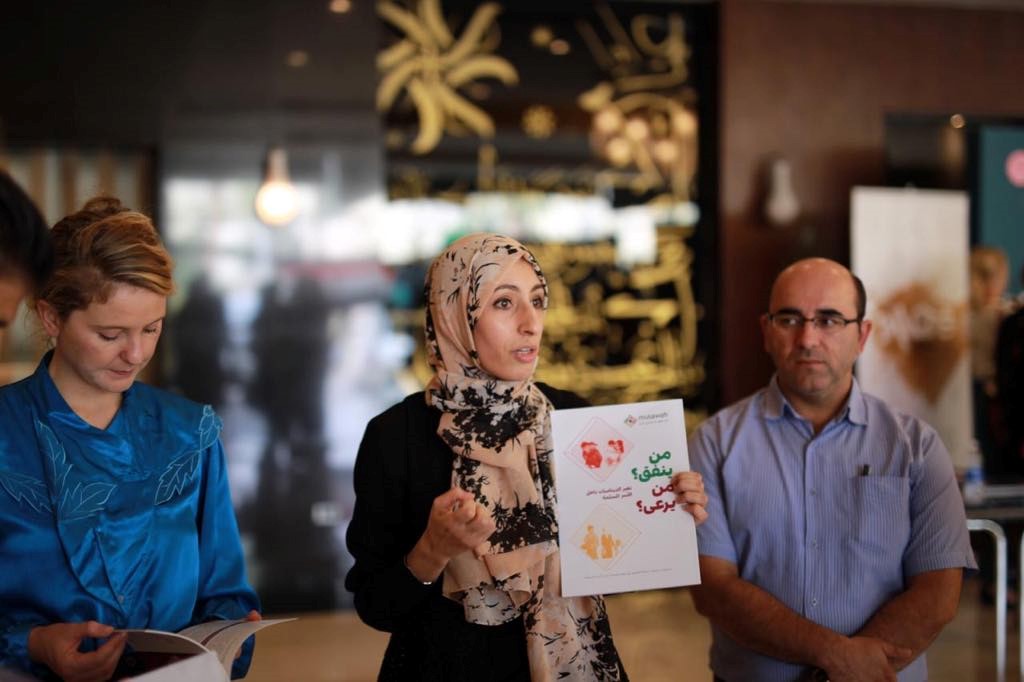Reclaiming gender equality in Islam
Date:

A number of restrictive laws in the Arab States region exacerbate challenges to the promotion and protection of women’s fundamental human rights. In response to this situation, Musawah, a women’s organization working to support equality and justice in Muslim families, is pushing back against the ways in which religion is sometimes misused to justify discrimination against women. The group is conducting research and analysis of religious texts to provide Muslim women with the tools to assess critically prevailing gender concepts and to advocate for non-discrimination.
“Musawah—meaning ‘equality’ in Arabic—was formed almost ten years ago,” said Sarah Marsso, Musawah’s Knowledge Building Coordinator, following a global meeting in Kuala Lumpur, Malaysia, attended by over 250 Muslim activists, scholars, legal practitioners and policy-makers.
“We offer a new knowledge-based discourse and framework to advocate for equality and justice for women living in Muslim contexts. We fuse Islamic teachings with human rights principles, laws and constitutional guarantees of equality, and the lived realities of men and women,” Sarah said.
Since its founding by the Malaysian NGO ‘Sisters in Islam’, Musawah has released numerous groundbreaking pieces of research on women in Muslim family law contexts. In 2016, Musawah started working with UN Women’s Regional Programme ‘Men and Women for Gender Equality’ to consolidate and analyze existing resources on Muslim family laws, to disseminate key ideas from these resources, and to conduct research on how women are affected by certain concepts in family laws in diverse country contexts.
As part of this partnership, Musawah documented the life stories of 55 Muslim women from 10 countries in the report Women’s Stories, Women’s Lives: Male Authority in Muslim Contexts and recently published the report Who Provides? Who Cares? Changing Dynamics in Muslim Families. Further, Musawah produced a series of knowledge building briefs on key concepts related to Muslim family laws.
Bringing change for women in the region
A range of women are benefiting from the knowledge and training Musawah provides, from Lebanon to Palestine to Egypt and beyond.
Heba Salah, from Dar Al Ifta, a major Islamic educational institute in Egypt that is linked to the leading religious university Al Azhar, joined a Musawah training conducted in Cairo in April 2017. While Heba already enjoyed significant experience working with Islamic texts at Dar Al Ifta, the insights she gained through the training was a game-changer.
“This course was an overall changing experience. The key learnings, for me, include first and foremost critical thinking skills, by which I mean how to reread Shariah texts through a gender lens and analyze their meanings in a way that fits our modern time. For me, this is what I call the ‘renewal of religious discourse.’”
After completing the course, Heba prepared a long-term plan to develop Dar Al Ifta’s religious discourse and public resources that address gender issues in Islam. Her plan, part of which is already under implementation, includes revisiting the fatwas (official religious verdicts) and research relating to gender equality in Islam.
But it’s not only Egypt where change is afoot. Training provided by Musawah is also having an impact on a new generation of scholar-activists graduating from the Lebanese American University (LAU) in Beirut.
Myriam Sfeir, the Assistant Director of the Institute for Women’s Studies in the Arab World (IWSAW) at LAU is also benefitting from this work.
“When I took the course, it was at the time that we were launching a course for our master’s program on Islamic Feminism. So, I took all the [Musawah] materials I got, and I gave them to the professor who was going to teach the course. She used my readings and I introduced her to some of the books from the Musawah training and we used this material to create a master’s course for students who are doing interdisciplinary gender studies,” said Myriam.
Marwa Kouki, a Tunisian woman living in Lebanon, who works in the women’s department of the United Nations Economic and Social Commission for Western Asia (UNESCWA), also took the Musawah-influenced interdisciplinary gender course. She said the course was eye-opening and inspirational.
“It made me look at things from a different perspective. I used to think that western feminism was the only kind of feminism that existed. I thought women in Muslim contexts were always submissive and without a voice. But after reading I see that women there are making their own choices. We need to look closely at how women in these societies want to live.”
May Mansour, another student of the gender programme who travels each week from Jordan to take her classes at LAU, said “Reading about these interpretations made me realize that religion needs to be reinterpreted. Women need to take a stand and take part in the [religious] interpretation process. The Quran can be a tool of gender equality. I want to use its ayat (verses) to give a favorable interpretation to women.”
In Palestine, too, Musawah’s trainings are rippling through society. Hanan Kamar, a legal analyst working with UN Women in Ramallah, took a Musawah training in 2016.
She has used her expanded knowledge and critical skills to begin shifting one of Palestine’s most traditional institutions, the Sharia courts, to take on more progressive stances for women. Religious courts in Palestine, whether Christian or Muslim, decide all family affairs, like marriage contracts, inheritance, custody, and divorce.
Through this training, Hanan said, “I became more aware of the discriminatory historical and social factors that bend laws against women.”